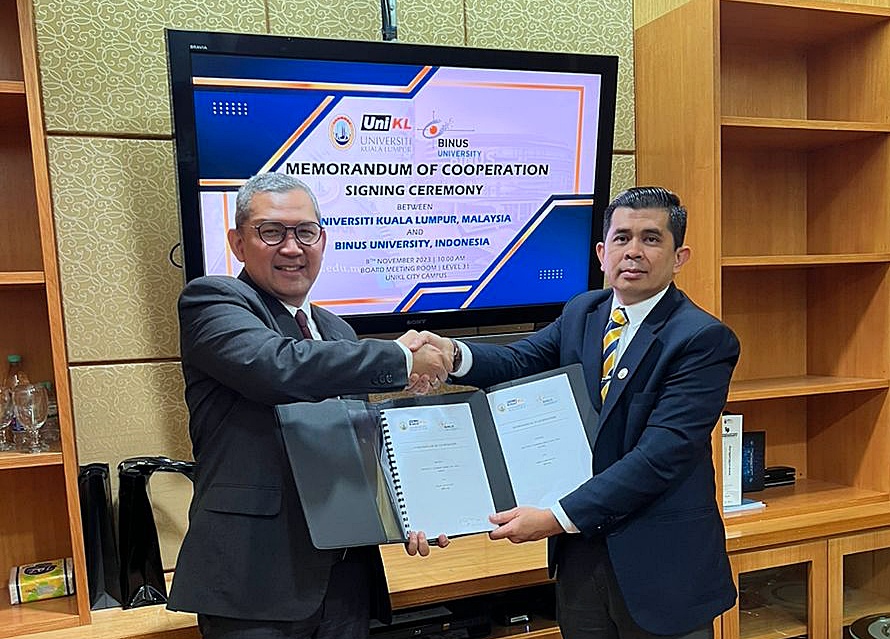Universiti Kuala Lumpur (UniKL) has established a Memorandum of Cooperation (MoC) with Bina Nusantara (BINUS) University, in a significant stride toward elevating its educational and international presence.
The signing ceremony took place at UniKL City Campus on November 8th.
Representing BINUS University were the Vice-Rector for Collaboration & Global Engagement, Prof. Dr. Tirta Nugraha Mursitama, and the Global Recognition Senior Officer, Mr. Rudi Alamsyah.
UniKL, on the other hand, was led by its Acting President and Chief Executive Officer, Assoc. Prof. Ir. Dr. Azman Senin, accompanied by the Director of UniKL International Office (UIO), Dr. Nadia Razali; Deputy Director of UIO, Dr. Mohd Razealy Anuar; and Senior Lecturer from UniKL Business School (UBIS), Dr. Ilham Sentosa.
This Memorandum of Cooperation encompasses two pivotal areas which are student and faculty exchange programmes and collaborative research initiatives. The signing ceremony also provided an invaluable platform for discussing future collaboration prospects.

Noteworthy is the fact that BINUS University, a prestigious private institution, is positioned within Indonesia’s elite top 10 universities.
Officially established in 1996, BINUS University is an integral component of the BINUS Foundation, which has been a stalwart in providing quality education since 1974.
Started as a vocational training institution specialising in computer systems and informatics, BINUS University has now evolved into a renowned university offering a comprehensive range of programmes across its 10 campuses.
The university offers a diverse range of programmes spanning various disciplines, including business, engineering, design, computer science, communication, and more.
In the prestigious QS World University Rankings 2024, both BINUS University and UniKL share their position in the range of 1001-1200.
The strategic partnership between UniKL and BINUS University marks a significant step forward in fostering global education collaboration and exchange, promising a brighter future for both institutions on the international stage.



Recent Comments